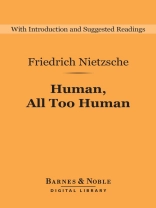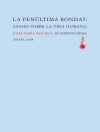Subtitled “A Book for Free Spirits, ”
Human, All Too Human rejects the conventional wisdom of the day for a more enlightened pursuit of reason. No longer influenced by the romanticism of Wagner and Schopenhauer, Friedrich Nietzsche turns to the skepticism and positivism that would define his philosophy for years to come. The witty aphorisms contained in this work have captivated readers since 1909 and still remain relevant.
Despre autor
Friedrich Wilhelm Nietzsche was born in the village of Röcken in Saxony on October 15, 1844. Nietzsche, whose father was a Lutheran pastor, spent a year as a theology student at the University of Bonn, before studying classical philology at the University of Leipzig. Despite poor health and desperate loneliness, Nietzsche managed to produce a book (or a book-length supplement to an earlier publication) every year from 1878 to 1887. In early January 1889, he collapsed in the street in Turin, Italy, confused and incoherent. He spent the last eleven years of his life institutionalized or under the care of his family.












